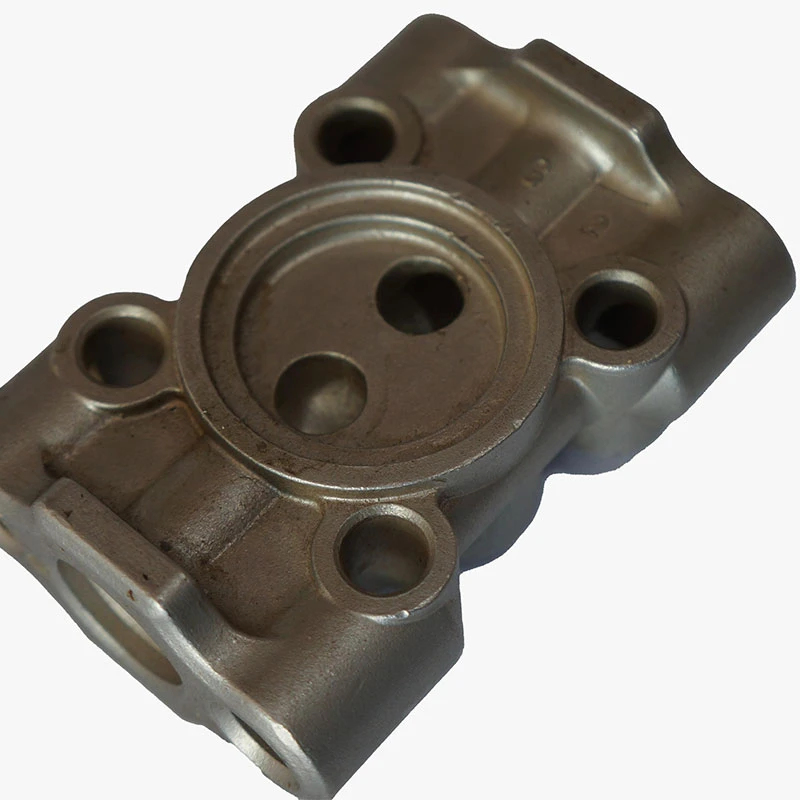Enhancing Quality Standards in Die Casting Processes for Optimal Production Efficiency
The Importance of Quality in Die Casting
Die casting is a key manufacturing process that allows for the production of intricate metal components with high precision and repeatability. As industries evolve and demand for complex geometries and reliability increases, the significance of quality in die casting cannot be overstated. Quality not only impacts the performance of the final product but also complies with industry standards, reduces costs, and enhances customer satisfaction.
Understanding Die Casting
Die casting is a process where molten metal is injected into a mold, or die, under high pressure. This method is suitable for a variety of metals, including aluminum, zinc, and magnesium, among others. The two primary types of die casting are cold chamber and hot chamber processes, each serving different material needs and product specifications.
The quality of die casting components is determined by several factors, including the design of the die, the method of metal injection, and the cooling process. Each step in the die casting process needs careful control to ensure that the final products meet the required specifications and standards.
Key Factors Influencing Quality
1. Material Selection The choice of material significantly influences the quality of the die casting. Each metal has its properties, including melting point and fluidity. Selecting the right material for the specific application helps prevent issues such as porosity and structural weaknesses.
2. Die Design A well-designed die is crucial for producing high-quality castings. Good die design minimizes issues such as shrinkage, warping, and uneven cooling. It is essential to consider factors like draft angles, wall thickness, and venting in the design phase to ensure proper filling and ejection of the cast part.
3. Injection Parameters The injection speed, pressure, and temperature play a vital role in the quality of the casting. High injection pressure ensures that the molten metal fills the mold completely, while adequate temperature prevents premature solidification. Adjusting these parameters is essential to avoid defects like air entrapment and incomplete filling.
4. Cooling Process After injection, the cooling phase must be controlled to prevent distortions and ensure uniform solidification. Poor cooling can lead to thermal stress and affect the mechanical properties of the casting. Implementing effective cooling strategies optimizes cycle times and maintains quality.
quality die casting

5. Post-Casting Processes After the die casting process, components may undergo various finishing processes, such as machining, polishing, and surface treatment. Each of these processes must comply with quality standards to ensure the final product meets performance specifications.
Quality Control Measures
To maintain quality in die casting, manufacturers should adopt a comprehensive quality control strategy. This includes
- Regular Monitoring Implementing regular inspections during the production process helps identify deviations from standards early. Techniques such as coordinate measuring machines (CMM) and X-ray inspection can be utilized to assess accuracy and detect internal defects.
- Statistical Process Control (SPC) Utilizing SPC tools allows manufacturers to analyze production data in real time, enabling them to make informed adjustments to minimize variations.
- Training and Skill Development Regular training for operators and engineers ensures that they are aware of the latest technologies and quality standards in die casting, thus enhancing overall production quality.
- Feedback Loops Establishing a feedback mechanism where employees can report issues or suggest improvements promotes a culture of quality and continuous improvement.
Conclusion
In the competitive world of manufacturing, the quality of die casting parts is a determinant of success. By focusing on quality throughout the die casting process—from material selection to finished product inspection—manufacturers can enhance the reliability and performance of their products. This commitment to quality not only leads to higher customer satisfaction but also establishes a firm foundation for long-term success in the industry. As technology continues to advance and customer requirements grow more complex, the role of quality in die casting will undoubtedly become even more pivotal.
-
OEM Sand Cast Pump Valve Fittings-Baoding Hairun Machinery|Precision Customization&Industrial SolutionsNewsAug.03,2025
-
OEM Sand Cast Pump Valve Fittings - Baoding Hairun Machinery And Equipment Trading Co., Ltd.|Precision Engineering&Fluid ControlNewsAug.03,2025
-
OEM Sand Cast Pump Valve Fittings-Baoding Hairun Machinery | Custom Casting SolutionsNewsAug.03,2025
-
OEM Sand Cast Pump Valve Fittings - Baoding Hairun Machinery And Equipment Trading Co., Ltd.NewsAug.02,2025
-
OEM Sand Cast Pump Valve Fittings - Baoding Hairun|Precision&CustomizationNewsAug.02,2025
-
OEM Sand Cast Pump Valve Fittings - Baoding Hairun Machinery And Equipment Trading Co., Ltd.NewsAug.02,2025















